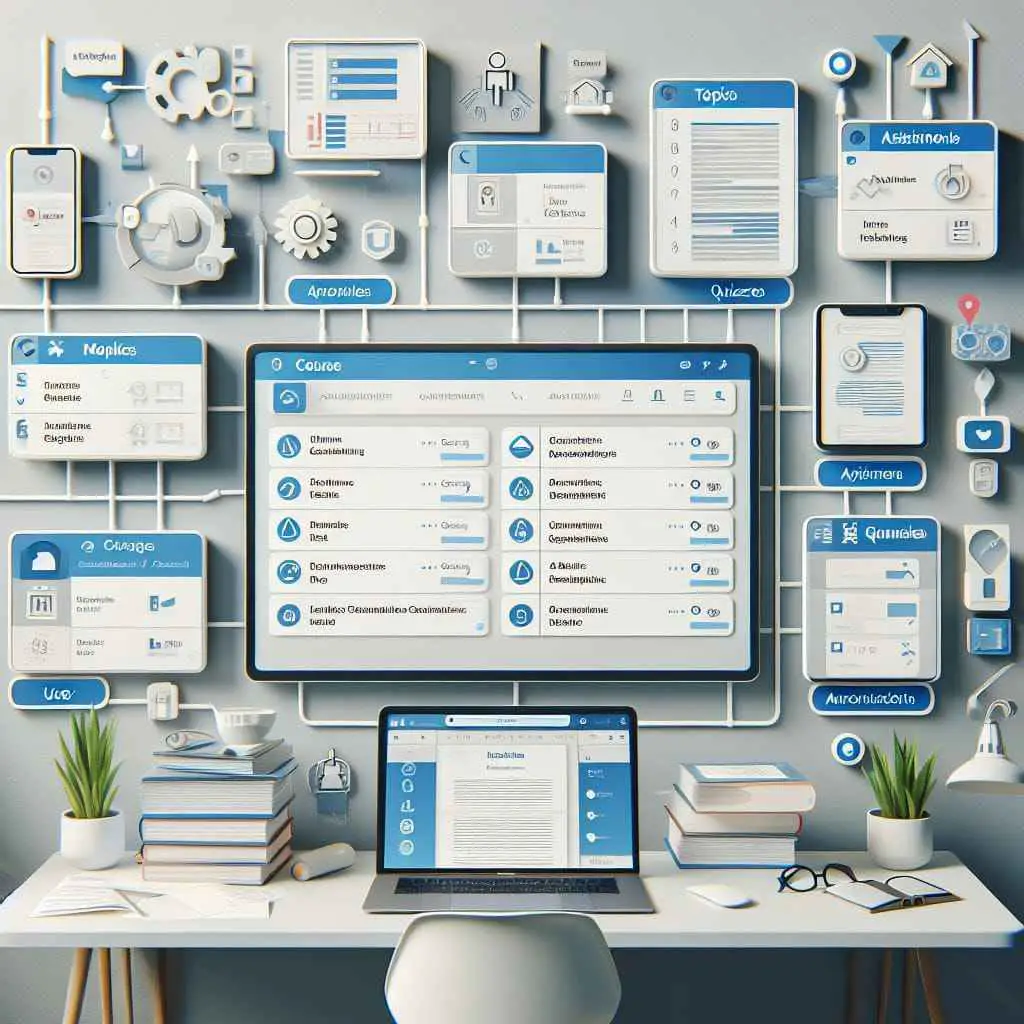Ways Learning Management Systems Revolutionize Employee Training

Employee training plays a role in the progress and advancement of any organization. In today’s digital era, the landscape of employee training has been completely transformed by learning management systems (LMS). These platforms have brought about a flexible approach to employee training, resulting in improved accessibility, engagement, tracking, and personalization. In this guide, we will delve into five ways in which LMS platforms are revolutionizing employee training.
1. Accessibility
Accessibility is one of the best benefits of LMS training for employees. In the past, employee training often required presence at specific locations or reliance on printed materials. This posed challenges for employees or those with scheduling conflicts. With LMS platforms in place, all training materials are readily available 24/7.
Employees can access courses from anywhere with an internet connection and at their convenience. This flexibility breaks down barriers and ensures that every employee has learning and skills development opportunities.
2. Interactive and Engaging Content
Traditional employee training programs heavily relied on one-way communication methods like lectures or presentations. Unfortunately, these passive and tiresome approaches to learning can result in disengaged employees who struggle to retain information.
An effective LMS incorporates features like quizzes, simulations, videos, and gamification elements to enhance the learning experience. Make it more engaging and memorable. These interactive exercises actively engage employees in the learning process. Enhance their retention of knowledge.
3. Efficient Tracking and Progress Monitoring
Keeping track of employee progress in training settings can be time-consuming and prone to mistakes. Manually recording attendance or monitoring completion rates through spreadsheets is not tedious but ineffective.
Learning Management System (LMS) platforms offer built-in tracking features that allow employers to monitor employee progress effortlessly. Through analytics dashboards, managers can evaluate completion rates, performance scores, and levels of participation and identify areas where additional support may be needed. This enables targeted interventions and ensures the utilization of resources for maximum impact.
4. Tailored Learning Paths
Not all employees learn at the pace or require the type of training. Traditional training programs may struggle to address this diversity in learning needs, resulting in poor knowledge transfer.
LMS platforms provide the flexibility to customize learning paths based on needs and job requirements. Employees can be assigned courses or modules that cater to their development areas or support career growth. This personalized approach enhances and ensures that each employee receives relevant and effective training.
5. Continuous Skill Enhancement
In an evolving business landscape, employees must continuously upgrade their skills and knowledge to stay competitive. Traditional training methods often fall short when it comes to providing opportunities for development.
Learning management systems (LMS) play a role in enabling learning by offering a wide range of resources that employees can access whenever they need them. These platforms allow individuals to explore modules, certifications, or micro-learning courses that help them stay up to date with industry trends and acquire skills as required. As a result, prioritizing learning not only supports employee growth but also boosts organizational performance.
6. Cost Effectiveness
Using employee training methods often leads to costs associated with printed materials, travel expenses, and venue bookings. For organizations with workforces or multiple locations, these expenses can quickly accumulate.
On the other hand, learning management systems offer a cost solution for employee training. With LMS platforms, there is no need to invest in materials or bear the burden of travel costs. All training materials are hosted online, eliminating the need for printing and distribution expenses. Furthermore, LMS platforms provide scalability options that allow businesses to easily accommodate a growing employee base without incurring costs.
Additionally, LMS platforms empower organizations to track and evaluate the effectiveness of their training initiatives. This data-driven approach helps identify areas where resources can be optimized and allocated efficiently, ultimately leading to overall cost management.
Conclusion
The use of learning management systems has completely transformed employee training by offering accessibility, engaging content, efficient progress tracking, personalized learning paths, ongoing development opportunities, and cost-effectiveness. These five important advantages have revolutionized training methods and paved the way for a more effective and efficient learning experience.
By incorporating an LMS platform into their organization’s training framework, businesses can unlock the potential of their workforce. Cultivate a culture centered around continuous learning and improvement. As technology advances in our digital era, it is evident that learning management systems are indispensable tools for nurturing talent development and achieving organizational success.






